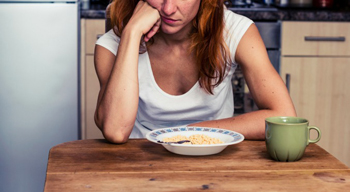Washington, Nov 12: According to a new research, child obesity is linked to multiple factors such as mothers smoking in pregnancy, children skipping breakfast and not having a regular bedtime or sufficient sleep.
 All three issues appear to be important factors in predicting whether a child will become overweight or obese. Since they are early life factors, they can be modified and the research highlights the possibility that prompt intervention could curb the growth in childhood obesity.
All three issues appear to be important factors in predicting whether a child will become overweight or obese. Since they are early life factors, they can be modified and the research highlights the possibility that prompt intervention could curb the growth in childhood obesity.
Being overweight or obese is linked to a child having poorer mental health, which can extend into adolescence and adulthood. This poorer psychosocial well-being includes low self-esteem, unhappiness as well as risky behaviours such as cigarette smoking and alcohol consumption.
The research is based on the Millennium Cohort Study, a study of children born into 19,244 families in the UKbetween September 2000 and January 2002. Data on weight and height was collected when the children were 3, 5, 7 and 11.
This research used observational information which does not allow firm cause and effect conclusions to be drawn. However the results are based on data from thousands of children and the researchers were able to take account of many of the influences on the development of a child's weight.
"It is well known that children of overweight or obese mothers are more likely to be overweight themselves, probably reflecting the 'obesogenic' environment and perhaps a genetic predisposition to gain weight," said Professor Yvonne Kelly (UCL Epidemiology and Public Health), who led the research.
"This study shows that disrupted routines, exemplified by irregular sleeping patterns and skipping breakfast, could influence weight gain through increased appetite and the consumption of energy-dense foods. These findings support the need for intervention strategies aimed at multiple spheres of influence on BMI growth."
Smoking in pregnancy has been linked to a higher risk of a child being overweight, possibly due to a link between foetal tobacco exposure and infant motor co-ordination which could be a developmental pathway to BMI growth.
The study identified four patterns of weight development. The large majority of children, 83.3 per cent, had a stable non-overweight BMI, while 13.1 per cent had moderate increasing BMIs while 2.5 per cent had steeply increasing BMIs. The smallest group, 0.6 per cent, had BMIs in the obese range at the age of 3 but were similar to the stable group by the age of 7.
Girls were more likely to be in the "moderately increasing" group while Pakistani, Black Caribbean and Black African children were more likely to belong to the "high increasing" group.
The research also looked at other factors to see what influence, if any, they had on children's weight.
After taking account of background factors, breastfeeding and the early introduction of solid food were not associated with children's weight. Likewise, sugary drink consumption, fruit intake, TV viewing and sports participation were not strong predictors of unhealthy weight gain.
The study has been published in the Pediatrics journal.





Comments
Add new comment